
Whether your dog is a puppy or has a white face, your dog can learn a new name. Teaching your dog a new name is one of the easiest things to do when adopting a new pet. All you need is some treats, a quiet space, and patience. That’s it!
Once your dog learns its new name, you can move on to other training sessions. But your dog has to understand its name first.
Look no further if you’ve recently adopted a new dog and need some help teaching its new name. We’re dishing out our seven tricks to playing the name game. And yes, this applies to older dogs as well. If your older dog is deaf or has ailments that might get in the way, don’t worry. We’re covering that, too.
Choose the Perfect Dog Name
Before you jump into training, ensure you’ve chosen the perfect name for your dog. This can be for a new puppy or an older adopted dog. You want to choose a name that fits your new family member perfectly.
Usually, pets respond better with one or two-syllable names. Long names like Alexander Bartholemew of Cheshire III might be difficult for your dog to learn (although not impossible).
In addition to your dog’s gender, consider any unusual quirks and personality traits your dog has. What about your dog makes it different from the other dogs? What about them makes you smile and feel loved?
After choosing the perfect name, it’s time to move on to the name game.

The 7 Tricks of the Name Game
Playing the name game means spending time with your dog using its new name. Let’s go over seven tricks to making the name game fast and effective.
1. Use a Clicker
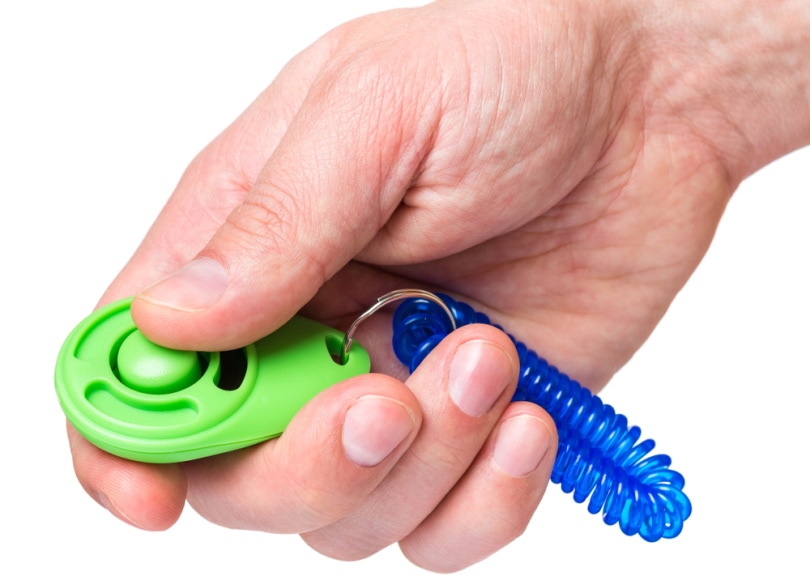
The first trick is to use treats and a clicker. A clicker is a small plastic box similar to a car key. The clicker has a metal tongue in the center that makes a “click” noise when you press down. This “click” noise alerts your dog that it’s done something right.
You can always use a pen if you don’t have a clicker. But if your dog is a puppy, we highly recommend getting a clicker since you can use it for other training sessions.
2. Make the Treats High-Value
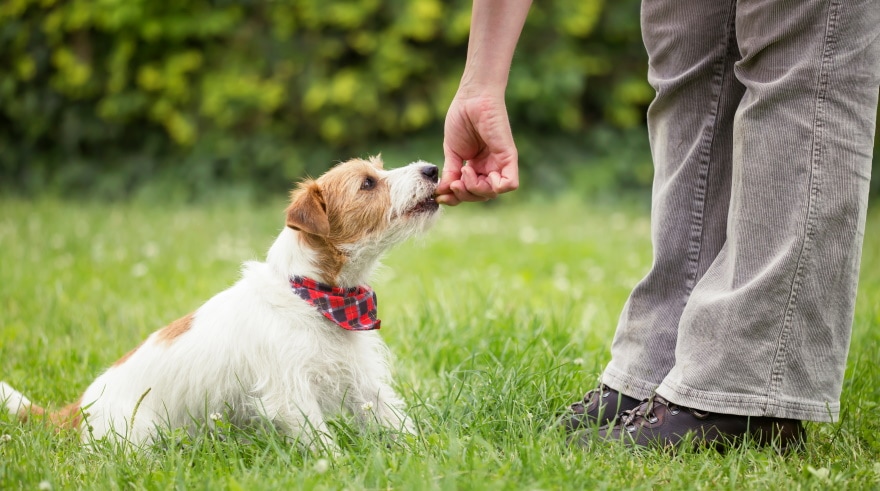
It’s not enough to offer kibble when training your dog. You want to use a mouth-watering treat that grabs your dog’s attention. Otherwise, your dog won’t care and will lose interest. The treat you select should be something your dog doesn’t get regularly.
3. Be in a Quiet Area (Indoors)

Dogs get distracted easily. To keep your dog’s focus on the name game, start in a quiet space free of loud noises, strangers, children, and anything else that could distract your dog. It’s wise to begin training inside so passing cars and animals aren’t a distraction.
4. Try Practicing on a Leash
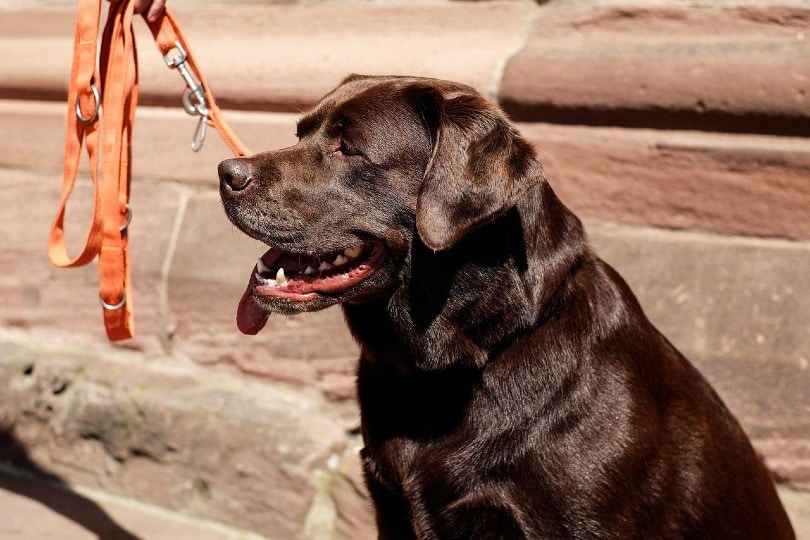
This may not be necessary for every dog, but starting on a leash is a good way to keep a puppy’s attention. Your puppy won’t be able to roam about freely. Instead, it will have to focus on you and the task at hand.
5. Say the Name Once
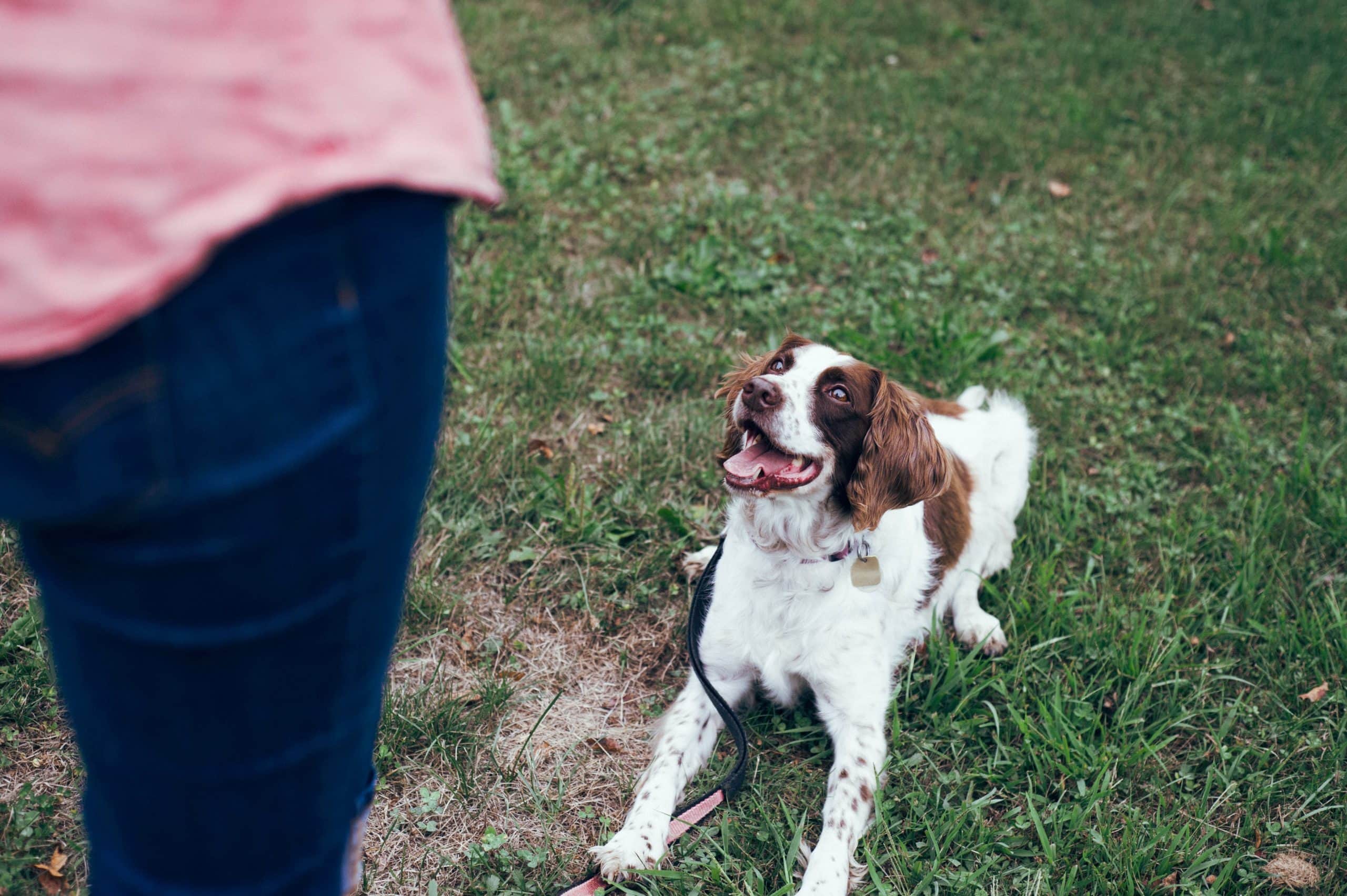
Try not to say, “Rufus! Rufus! Rufus! Rufus!” over and over again. Instead, say the name once and wait for the reaction. Give your dog some time and try again.
6. Don’t Delay on Treats
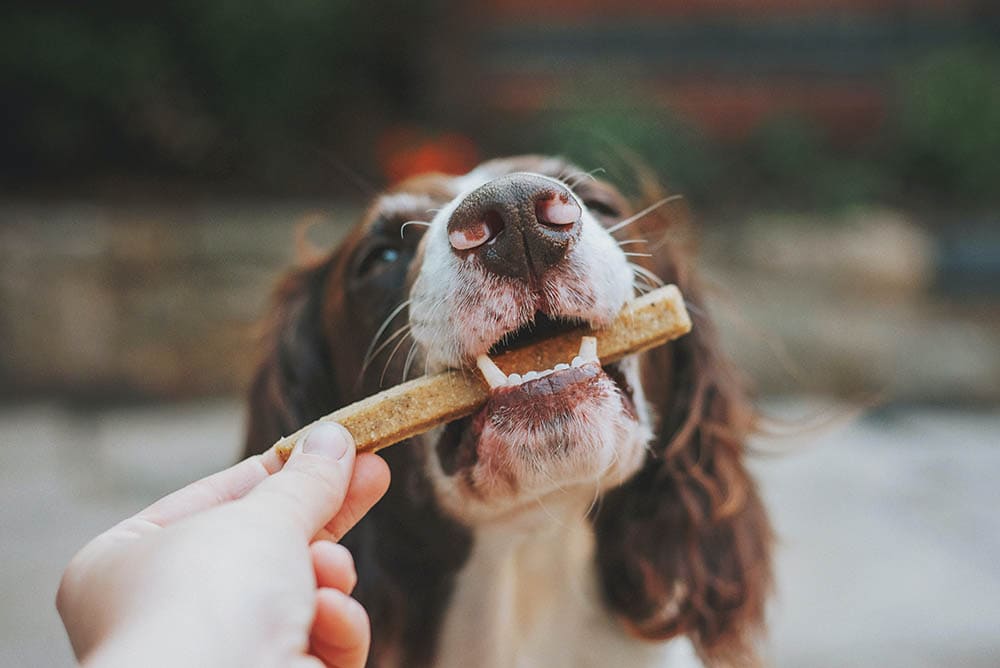
Your dog needs to know why it’s being rewarded. Otherwise, it can’t associate the name with positive reinforcement. Reward your dog immediately, and don’t delay.
7. Be consistent
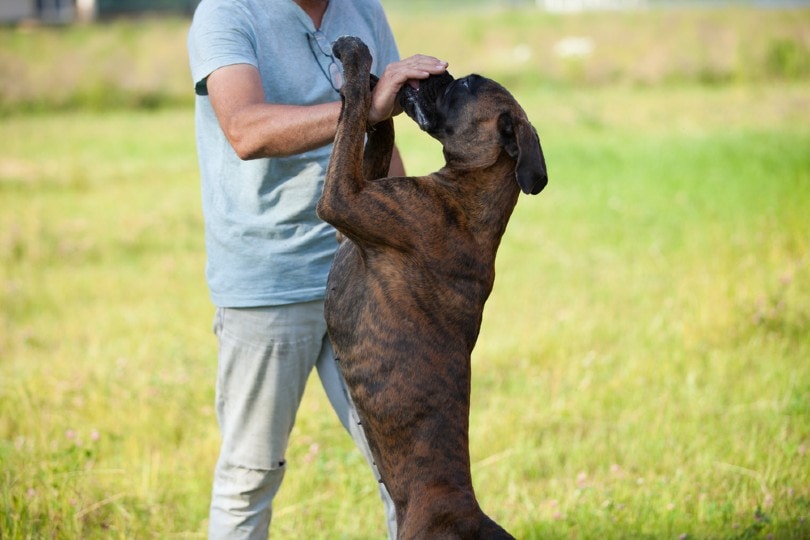
Soon, your dog will respond to its new name. But learning a new name takes time. So, be forgiving of your dog and be consistent with training.

The “Name Game”: Variation 1
Now it’s time to play the name game. There are a few ways you can play this game. This variation requires your dog on a leash, so it’s best for puppies or dogs that are distracted easily.

- Start in a quiet space on a leash. Go somewhere indoors, free from distractions.
- Say the name once using a happy voice and wait for your dog to respond.
- Click and reward when your dog looks at you as you say its name. Reward immediately. If you don’t have a clicker, that’s okay. Just offer the treat.
- Repeat
The “Name Game”: Variation 2
This variation allows your dog to move about as it pleases, so it’s best for older dogs or puppies graduating from the leash.
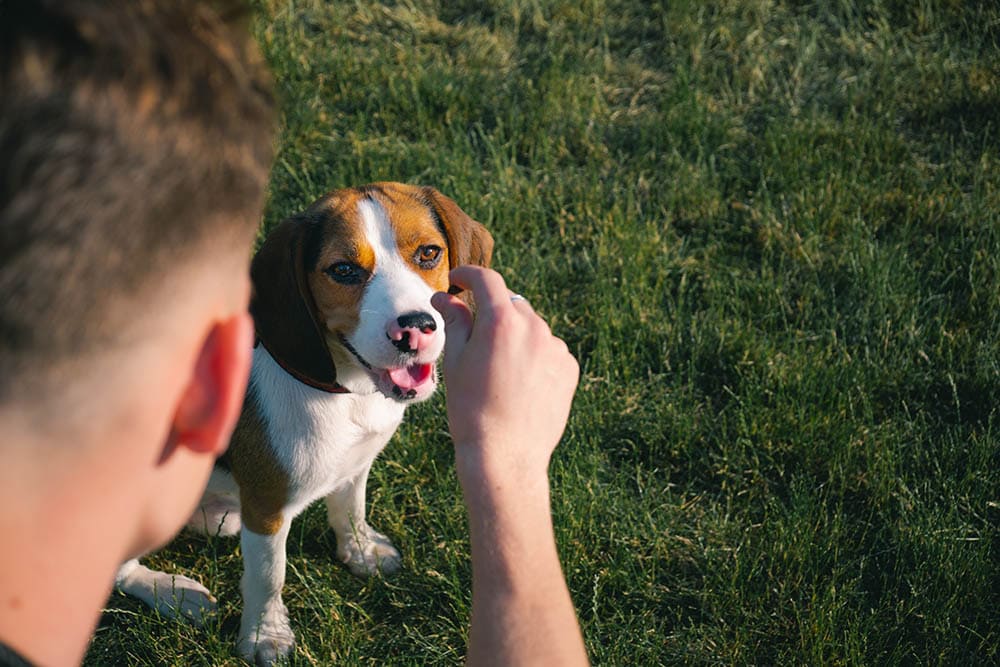
- Start in a quiet space indoors but off leash.
- Toss the treat away from you, allowing your dog to search for and fetch the treat.
- Say the name once using a happy voice and wait for your dog to respond.
- Click and reward when your dog looks at you. If you don’t have a clicker, just offer the treat.
- Repeat.
The “Name Game”: Variation 3
This variation allows your dog to move about as it pleases. It’s much more relaxed and fun. If your dog likes to play hide and seek, it will love this variation. Keep in mind that this variation is best for dogs that have mastered the first two variations.

- Start anywhere in the house away from your dog but where your dog can still hear you. Don’t hide somewhere where it takes a while for your dog to find you.
- Say the name once using a happy voice and wait for your dog to come to you.
- Click and reward when your dog finds you.
- Repeat.

Teaching Your Deaf Dog a New Name
Teaching your dog a new name is pretty simple. However, you may have to adjust your technique if your dog is deaf or hard of hearing.
Teaching a new name isn’t your primary goal if this is the case with your dog. Instead, you aim to teach focus.
Since your dog can’t hear your voice, you’ll have to rely on visual cues and hand signals instead of clicker training. So, every time your dog looks at you, offer a treat. This encourages your dog to pay attention to you.
The Focus Game (for Deaf Dogs): Variation 1
- Start in a quiet space indoors. You can do this off-leash or on-leash, depending on how good your dog is at focusing.
- Wait for your dog to look at you. When your dog looks at you, offer a treat.
- Repeat.
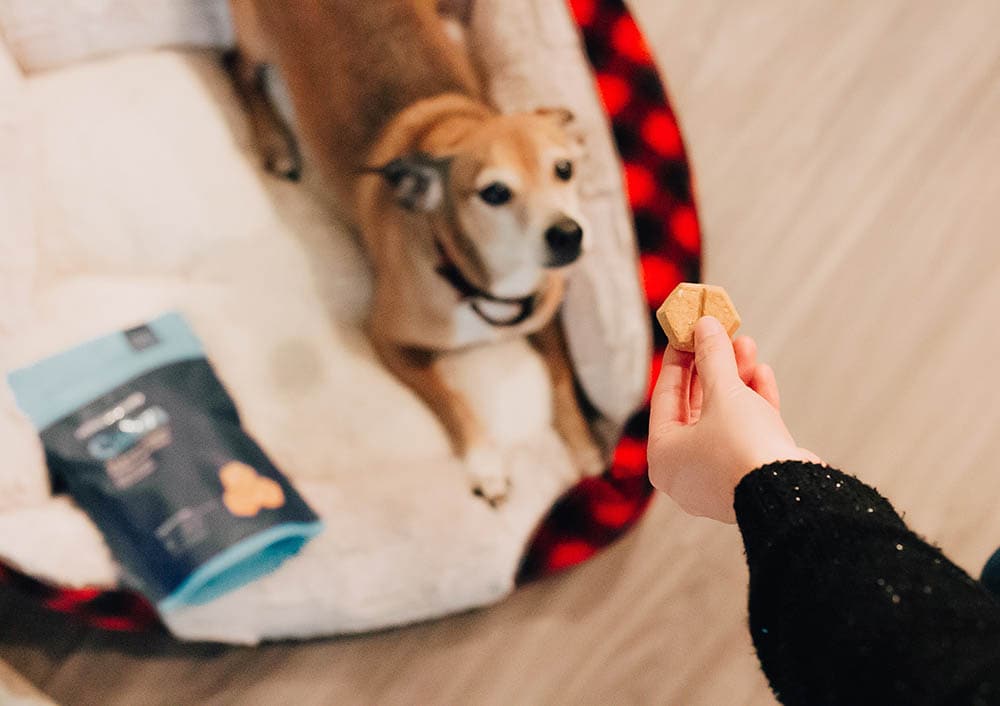
Image Credit: Honest Paws, Unsplash
The Focus Game (for Deaf Dogs): Variation 2
When your dog has learned that paying attention to you is beneficial, you can move on to the next variation of the Focus Game. This includes using a hand signal or light to grab your dog’s attention.

- Start in a quiet space indoors. You can do this off-leash or on-leash, depending on how good your dog is at focusing.
- Wait for your dog to look away. Either tap your dog’s shoulder or use a light to grab your dog’s attention.
- Reward when your dog looks at you.
- Repeat

How to Train Without Treats
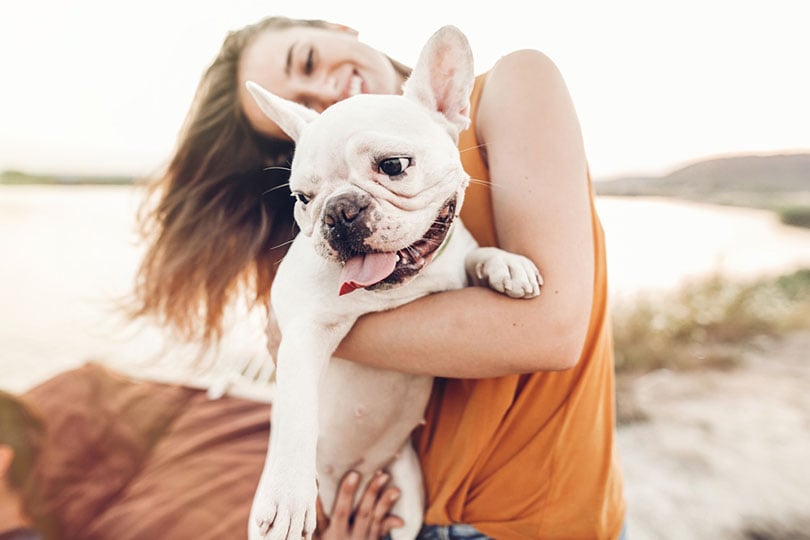
Treat motivation offers quick results since most dogs are highly food motivated. But it does come with limitations. Not all dogs want to work for treats. Sometimes the treats aren’t delicious enough. Other times, dogs need to lose weight by laying off the treats for a while.
But here’s the good news: you don’t have to use treats if you don’t want to. It’s a good idea to start with treats, especially if you’re training a puppy. However, you have complete freedom to stop using treats and implement other positive reinforcement methods. The important thing is to reward your dog for doing something right. How you reward your dog is up to you.
You can use anything your dog wants to work for, such as:
The sky is the limit. The better you know your dog, the easier training becomes without treats.

Wrapping It Up
Teaching your dog its new name doesn’t have to be complicated. Most dogs learn within a few weeks through repetition and positive reinforcement. You’ll experience a different kind of training if your dog is deaf. But aside from changing your training technique, teaching a deaf dog is just as easy.
The great thing about teaching your dog its new name is the relationship you build together. A new bond is formed, and soon your dog won’t need to hear its name for snuggle time.
We know you can’t wait. So, get to training!
Featured Image Credit: Gorodenkoff, Shutterstock
